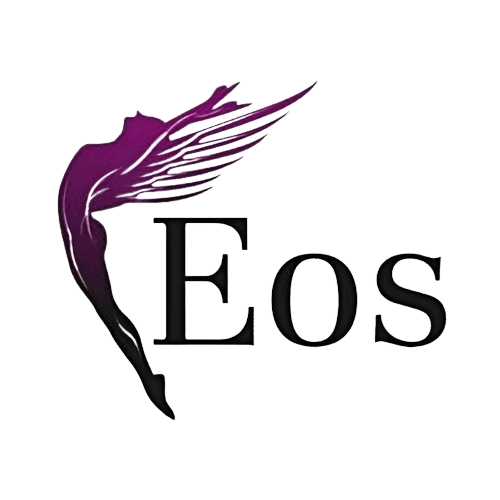Table of Contents
ToggleGoing international opens exciting doors for businesses, but it also adds a whole new layer of complexity to your operations, especially when it comes to payroll. This is why Global Payroll Management is key for companies looking to successfully expand beyond borders.
What is global payroll management and why is it important?
Global payroll management is the process of managing payroll operations for employees across multiple countries. It is important because it ensures compliance with local labour laws and regulations, streamlines payroll processes, reduces errors, and provides accurate and timely payments to global employees.
Understanding Global Payroll Management
Understanding the complexities of global payroll management is crucial for businesses operating internationally. Processing payroll for employees in different countries involves a deep understanding of local labour laws, tax authorities, and social security regulations. Specialised payroll software is essential to efficiently manage global payroll operations and ensure compliance with diverse legal requirements. Coordination with legal experts is necessary to navigate the intricacies of local laws and regulations. Furthermore, comprehending international payroll taxes and employee benefits is vital for effective global payroll management. Leveraging the best global payroll services, businesses can streamline their operations, manage international contractors, and support their international team.
Effective Global Payroll Management
The management of payroll on a global scale involves the intricate task of processing payments for international employees situated across various countries. This includes overseeing the payroll for both employees and contractors within a global workforce. Given the diverse geographical landscape, global payroll operations demand strict adherence to local labour laws and legal compliance in each individual country. Additionally, an effective global payroll solution relies on the utilisation of payroll systems capable of handling international payroll data and tax calculations, ensuring accurate processing of payments for employees in different countries.
Effective management of payroll on a global scale is crucial to ensure compliance with varied legal requirements in different countries. This includes adherence to local labour laws, tax regulations, and social security norms. Moreover, accurate processing of payroll, including taxes and benefits, is essential for international employees. A well-managed global payroll system also contributes to a positive employee experience for a diverse, international team. Small and large businesses benefit from efficient payroll operations for their employees operating across multiple countries. Furthermore, proper global payroll management enables cost allocation to different operational centres and ensures regulatory compliance without any hiccups.

Key Challenges in Managing Global Payroll
Managing payroll across different countries amplifies the complexity of an already intricate process. The first hurdle that companies often encounter is dealing with numerous currencies. Currency exchange rates are in a state of constant flux, causing the actual cost of employee compensation to vary. This presents a challenge in maintaining budget accuracy and making sound financial forecasts.
In addition to currency management, understanding and complying with distinct tax systems further complicates global payroll operations. Each country has a unique set of tax rules and regulations that companies are obligated to follow. These can range from income tax rates and social security contributions to mandatory employee benefits. Non-compliance is not an option, as it can lead to hefty penalties and damage to the company’s reputation. Income tax laws also change often: for example, this year saw Bangladesh overhaul their tax system.
Moreover, the diversity in labour laws among different countries creates another layer of complexity. From minimum wage rates to working hour restrictions, these laws dictate the terms of employment and have direct implications on payroll management. Therefore, a thorough understanding of these laws, often in different languages, is an absolute necessity for effective global payroll management. It’s also important to be constantly up to date with labour regulations in each country, as these too are subject to change, like with Vietnam changing their labour laws regarding foreign work this year.
Cultural and regional differences further complicate payroll operations, requiring a nuanced understanding of diverse work environments. Data security and GDPR compliance are critical concerns, demanding robust measures to ensure the confidentiality and integrity of international payroll data.
In essence, managing payroll across different countries is an intricate task that demands a deep understanding of diverse currencies, tax systems, and labour laws. It poses substantial challenges but also provides opportunities for organisations to streamline their processes and enhance their global operations.
Addressing the complexities of international labour laws and local regulatory compliance poses a significant challenge in managing global payroll. Cultural and regional differences further complicate payroll operations, requiring a nuanced understanding of diverse work environments. Data security and GDPR compliance are critical concerns, demanding robust measures to ensure the confidentiality and integrity of international payroll data. Managing global payroll services also involves navigating an array of necessary forms and legal obligations across multiple jurisdictions. Additionally, accommodating varied workforce sizes and meeting regulatory requirements in different countries adds another layer of complexity to global payroll management.
Best Practices
Employing a global payroll provider can streamline payroll operations and ensure regulatory compliance. Utilising global payroll software helps centralise payroll data for international employees. It is essential to ensure compliance with local payroll taxes, social security, and labour laws. Best practices include employing legal experts to navigate payroll management in various countries. This ensures that the payroll processing for a global workforce across different countries is handled with care and adherence to local regulations. Streamlining payroll through professional employer organisations (PEO) or an employer of record (EOR) can also aid in managing international contractors and contract workers effectively, especially in countries like the United States and the United Kingdom. These best global payroll services offer support for managing an international team and maintaining legal entity compliance.
Centralised Payroll System
A centralised payroll system is essential for effective global payroll management. By centralising payroll data, companies can streamline their processes and ensure accuracy and compliance. This system allows HR departments to access employee information and track payroll transactions from a single platform, eliminating the need for multiple systems and reducing the risk of errors or data breaches.
With a centralised payroll system, companies can easily manage payroll for employees located in different countries. The system can account for various currencies, tax laws, and labour regulations, ensuring that employees are paid accurately and in compliance with local requirements. This also enables better reporting and analytics. Another benefit of consolidating global payroll operations is that it eliminates the need for multiple manual processes and reduces administrative overhead.
Standardised Workflows
Standardised workflows are crucial for efficient global payroll management. By implementing standardised processes, companies can ensure consistency and accuracy in payroll operations across different countries.These workflows should cover key aspects of payroll management, such as employee onboarding, timekeeping, leave management, and tax withholding. By establishing clear guidelines and procedures for each step in the payroll process, organisations can minimise errors and mitigate compliance risks.
Additionally, standardised workflows enable effective communication between HR teams and various stakeholders involved in the payroll process. This promotes collaboration and ensures that everyone is aligned with the established procedures.
Regular Audits and Compliance Checks
Companies must regularly review their payroll processes and systems to ensure they are compliant with local tax laws, labour regulations, and reporting requirements. These audits help identify any discrepancies or non-compliance issues that need to be addressed promptly. By conducting regular checks, companies can mitigate the risk of penalties, fines, or legal actions resulting from non-compliance and find areas for improvement and implement corrective measures. Audits should include a review of payroll data, employee records, tax filings, and any other documentation relevant to payroll operations.

To prioritise compliance, organisations should establish a robust system for tracking and monitoring changes in legislation across different countries. This includes staying informed about tax rate adjustments, labour law revisions, and reporting requirements specific to each jurisdiction. By proactively monitoring compliance obligations, companies can avoid potential penalties or legal consequences resulting from non-compliance. This may involve partnering with local experts or engaging specialised payroll service providers who have a deep understanding of the regulatory landscape.
Leverage Technology
In order to streamline global payroll management, companies should leverage technology to automate and improve their payroll processes. With the help of payroll software or cloud-based platforms, organisations can enhance accuracy, efficiency, and compliance in managing payroll across different countries.
Technology can facilitate the integration of various systems, such as time and attendance tracking, HR management, and accounting software, with the payroll system. This integration ensures seamless data transfer and reduces manual errors in processing employee payments. In this sense, technology can aid in centralising systems.
Additionally, advanced reporting features within payroll technology enable companies to generate real-time insights and analytics on payroll expenses, tax liabilities, and compliance status. This data can be invaluable for decision-making, budgeting, and forecasting purposes.
Regular Payroll Data Reporting and Analytics
Regular payroll data reporting and analytics are crucial for effective global payroll management. By regularly analysing and reviewing payroll data, companies can identify trends, patterns, and discrepancies that may require attention.
Payroll data reporting enables organisations to monitor employee compensation, tax withholdings, deductions, and benefits across different countries. This information helps ensure compliance with local regulations and provides transparency to employees regarding their earnings.
Analytics on payroll data can also provide insights into cost-saving opportunities. By analysing employee compensation, organisations can identify areas where adjustments can be made to optimise payroll expenses without compromising employee satisfaction or productivity.
Moreover, regular reporting and analytics help organisations identify potential payroll errors or discrepancies. By closely monitoring payroll data, companies can quickly address any issues and ensure accurate and timely payment to employees.
In addition to error detection, regular reporting and analytics enable organisations to assess their payroll performance against key performance indicators (KPIs). This allows for continuous improvement of payroll processes and the ability to benchmark against industry standards.
Another benefit of regular reporting and analytics is the ability to track and analyse employee turnover rates. By examining payroll data, organisations can gain insights into why employees are leaving and take necessary steps to improve retention.
Data Security and Confidentiality
When it comes to global payroll management, data security and confidentiality are of utmost importance. With the vast amount of sensitive information involved in payroll processing, companies must prioritise the protection of employee data.
Implementing robust security measures is essential to safeguarding payroll information from unauthorised access or breaches. This includes encryption techniques, access controls, and regular security audits to identify and address any vulnerabilities.
Furthermore, organisations should establish strict policies and procedures to ensure the confidentiality of payroll data. This may involve limiting access to only authorised personnel who require the information for their job responsibilities. Regular training sessions should also be conducted to educate employees
Choose The Right Payroll Provider
Employing a payroll service provider like a PEO or an EOR will also help streamline processes and make global payroll management less of a headache for international businesses. However, it’s important to pick the best fit for your company. A reputable payroll provider will have extensive knowledge and experience in handling complex global payroll processes. They will understand local tax regulations, compliance requirements, and labour laws, ensuring accurate and timely payroll processing.
Role of PEO and EOR in Global Payroll
PEO and EOR services provide crucial support for international workers and contractors, offering legal compliance assistance for international payroll operations. PEO services encompass HR functions, benefits administration, and payroll management. In contrast, EOR services serve as the legal employer of record for international workers, ensuring compliance. Global payroll services prioritise efficient payroll operations across multiple countries, addressing diverse regulatory requirements. Understanding these differences is crucial for streamlined global workforce management. PEO, EOR, and global payroll services each fulfil distinct functions, contributing to the overall efficiency of international operations. By leveraging PEO and EOR services, organisations can ensure legal entity establishment, HR support, and compliance with local regulations. This strategic approach to international team management and payroll processing is vital for successful global operations.

Emerging Trends in Global Payroll Management
Enhancing the security of global payroll operations, blockchain technology has emerged as a key trend. This technology ensures transparency and security in payroll processes, safeguarding sensitive information. Additionally, the flexibility in payment options caters to the diverse needs of a global workforce, prioritising employee experience. These emerging trends underscore the importance of adapting to the dynamic landscape of global payroll management, emphasising the need for advanced solutions to meet the evolving demands of international contractors and teams. As organisations expand across borders, these trends play a pivotal role in shaping the future of global payroll management, ensuring compliance and efficiency in an increasingly interconnected world.
Blockchain Technology for Enhanced Security
Blockchain technology plays a crucial role in ensuring the integrity and security of global payroll operations. By leveraging blockchain technology, payroll management guarantees transparent and secure transactions while significantly reducing the risk of payroll fraud. The implementation of blockchain-based payroll systems also provides immutable payroll records, ensuring compliance with legal entities and offering enhanced security measures to safeguard payroll data integrity. Furthermore, the utilisation of blockchain technology ensures traceability and security of payroll transactions, addressing critical concerns related to data security for international contractors and teams. As a result, organisations can benefit from the best global payroll services with heightened security measures in place, meeting the evolving needs of the global workforce.
Flexibility in Payment Options
Enhancing the satisfaction of your international employees is crucial, and offering multiple payment options plays a key role in achieving this. By being flexible in payment methods, you can effectively cater to diverse global workforce preferences and accommodate international payroll requirements. This not only improves the overall payroll processes for international employees but also supports global payroll operations effectively. Additionally, providing varied payment options can significantly enhance employee satisfaction as it gives them the freedom to choose how they receive their payments, aligning with their individual needs and preferences. By considering adaptable payment options, you can effectively streamline your global payroll management and ensure that your international team feels supported and valued.
Conclusion
In conclusion, managing global payroll requires a comprehensive understanding of the complexities involved, as well as the implementation of best practices. Adhering to international labour laws, navigating cultural and regional differences, and ensuring data security are crucial aspects of effective global payroll management. When selecting a global payroll service provider, consider factors such as software accessibility, range of HR services offered, and security measures. Additionally, stay updated on emerging trends in global payroll management, such as blockchain technology for enhanced security and flexibility in payment options. Lastly, consider the role of PEO and EOR services in streamlining global payroll processes and maximising benefits. By following these guidelines, you can effectively manage your global payroll and ensure compliance while optimising efficiency and accuracy.







